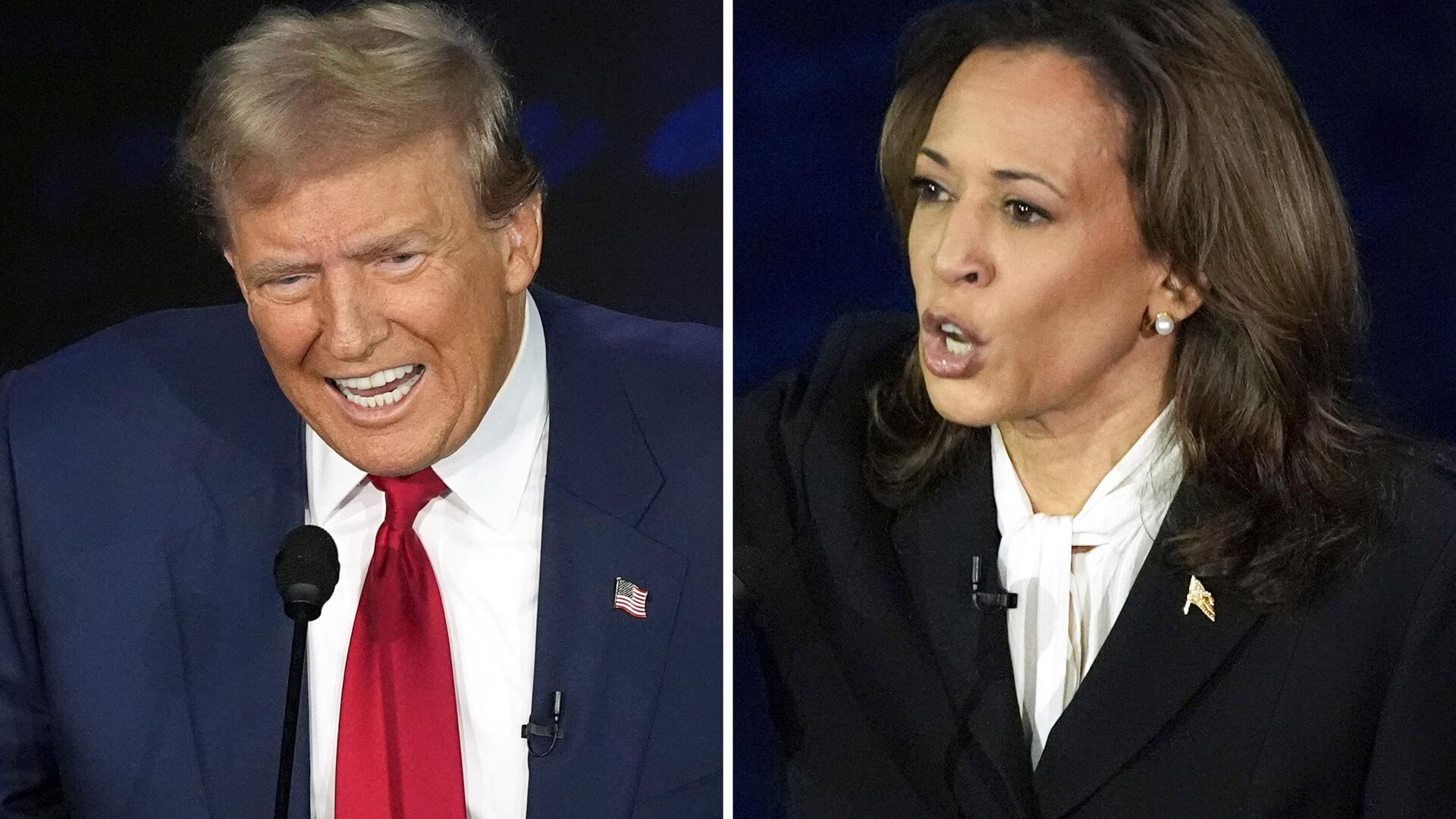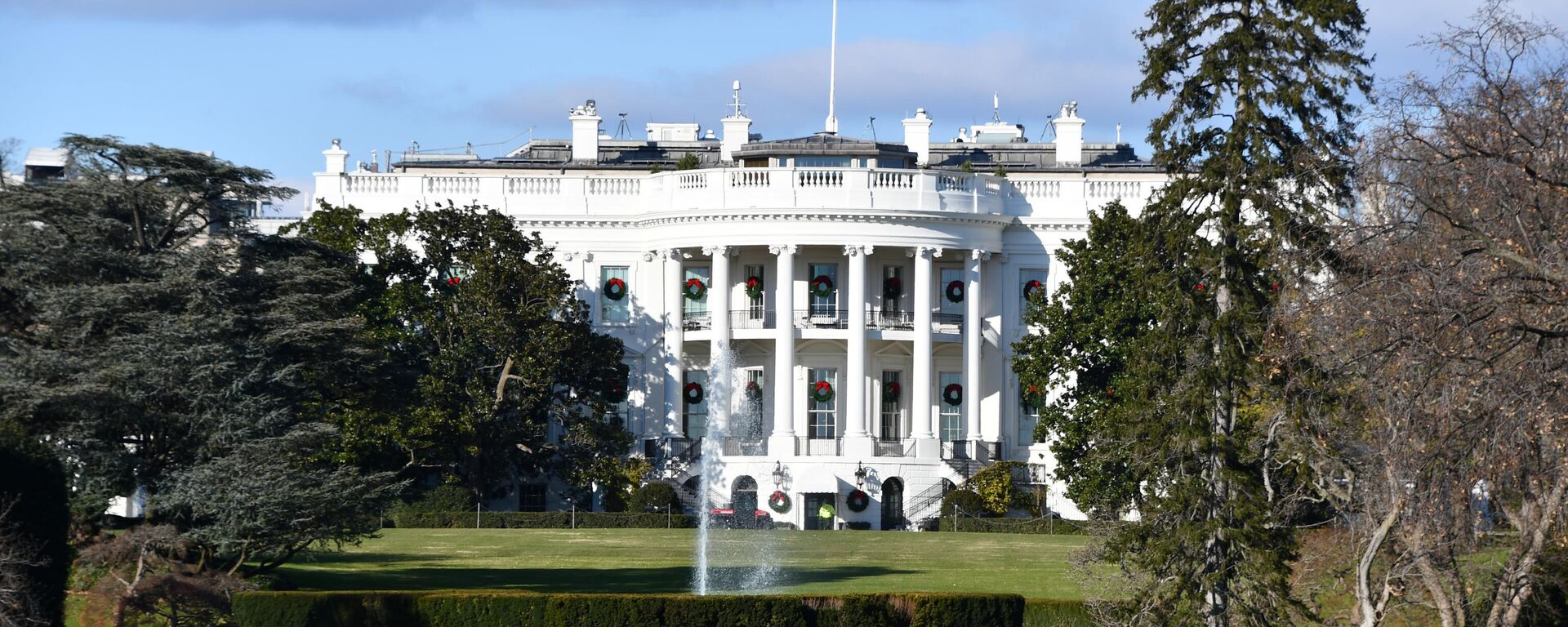https://sputniknews.in/20241105/how-americas-presidential-race-might-transform-south-asias-future-8363474.html
How America's Presidential Race Might Transform South Asia's Future
How America's Presidential Race Might Transform South Asia's Future
Sputnik India
Since its pullout from Afghanistan in 2021, the United States has shifted its engagement with South Asia to prioritise countering regional powers such as China... 05.11.2024, Sputnik India
2024-11-05T18:19+0530
2024-11-05T18:19+0530
2024-11-05T20:58+0530
south asia
china
india
https://cdn1.img.sputniknews.in/img/07e8/09/0b/8134091_0:156:3000:1844_1920x0_80_0_0_06db954acfb3a5f4aca85cdfe100e4a4.jpg
For South Asia, the key question looms: Is the region going to experience a reset or continuity in Washington's policy? Significantly, both Republicans and Democrats would want to further strengthening their relationship with India, particularly to counter Chinese influence in the region and enhance cooperation within the Quad and the broader Indo-Pacific framework, Tulika Bhatnagar, Regional Editor of South Asia at Press Xpress, former senior Journalist of BBC News, told Sputnik India.She believes that a significant shift in Bangladesh's political landscape could be on the horizon. Under a potential new US administration, approaches would likely differ: Donald Trump might advocate for expedited elections, whereas Kamala Harris would potentially back the existing interim government, the expert elaborated. It remains a wait-and-watch situation, the pundit noted, emphasising that South Asia will continue to be a critical area of focus for any new US presidency.If Harris takes office, she is likely to maintain the policies of the Biden administration, with little changes, ensuring continuity in security matters, Vivek Mishra, Deputy Director of the Strategic Studies Programme at the Observer Research Foundation, told Sputnik India. Whereas, a Trump presidency would likely lead to increased engagement, heightened influence, and renewed geostrategic activities, there would be more competition and conflict in the region, he assured.He further explained that as far as Bangladesh is concerned, if Harris takes office, she will likely maintain the current approach toward the interim democratic government, and potentially neglect the situation of minorities in Bangladesh. In contrast, if Donald Trump returns to power, he may prioritise alliances over democracy.The outcome of the 2024 US presidential election is poised to have a substantial effect on South Asia, particularly on Pakistan's geopolitical landscape concerning alliances, security, and economic strategies. Should Trump secure victory, we can anticipate a bolstered US-India partnership, as his emphasis on countering China may lead to Pakistan being marginalised, according to Waqar Rizvi, a Canadian-Pakistani geopolitical analyst.Pakistan's strategy will hinge on the election result: A Harris administration could provide steady economic support and an inclusive regional approach, while a Trump victory may limit diplomatic options and intensify reliance on China. This situation will require Pakistan to navigate US-China tensions adeptly within the Indo-Pacific context, he concluded.
https://sputniknews.in/20240402/trump-or-biden-explaining-indias-take-on-us-election-7016076.html
south asia
china
india
Sputnik India
feedback.hindi@sputniknews.com
+74956456601
MIA „Rossiya Segodnya“
2024
Muhammad Sharif
https://cdn1.img.sputniknews.in/img/07e7/0b/05/5257054_0:0:443:444_100x100_80_0_0_b8bd2af32be62a6eecdb4a84c7fd978f.jpg
Muhammad Sharif
https://cdn1.img.sputniknews.in/img/07e7/0b/05/5257054_0:0:443:444_100x100_80_0_0_b8bd2af32be62a6eecdb4a84c7fd978f.jpg
News
en_IN
Sputnik India
feedback.hindi@sputniknews.com
+74956456601
MIA „Rossiya Segodnya“
Sputnik India
feedback.hindi@sputniknews.com
+74956456601
MIA „Rossiya Segodnya“
Muhammad Sharif
https://cdn1.img.sputniknews.in/img/07e7/0b/05/5257054_0:0:443:444_100x100_80_0_0_b8bd2af32be62a6eecdb4a84c7fd978f.jpg
south asia, china, india
How America's Presidential Race Might Transform South Asia's Future
18:19 05.11.2024 (Updated: 20:58 05.11.2024) Since its pullout from Afghanistan in 2021, the United States has shifted its engagement with South Asia to prioritise countering regional powers such as China and India. This time, each candidate presents unique foreign policy strategies that are going to profoundly impact the region's geopolitical landscape.
For South Asia, the key question looms: Is the region going to experience a reset or continuity in Washington's policy? Significantly, both Republicans and Democrats would want to further strengthening their relationship with
India, particularly to counter Chinese influence in the region and enhance cooperation within the Quad and the broader Indo-Pacific framework,
Tulika Bhatnagar, Regional Editor of South Asia at Press Xpress, former senior Journalist of BBC News, told
Sputnik India."In light of the recent US sanctions against 19 Indian firms due to the Russia-Ukraine conflict, it’s likely that a Harris victory would lead to more sanctions. On the other [hand], a Trump victory would likely result in a more lenient approach," Bhatnagar explained.
She believes that a significant shift in Bangladesh's political landscape could be on the horizon. Under a potential new US administration, approaches would likely differ: Donald Trump might advocate for expedited elections, whereas Kamala Harris would potentially back the existing interim government, the expert elaborated. It remains a wait-and-watch situation, the pundit noted, emphasising that South Asia will continue to be a critical area of focus for any new US presidency.
If Harris takes office, she is likely to maintain the policies of the Biden administration, with little changes, ensuring continuity in security matters, Vivek Mishra, Deputy Director of the Strategic Studies Programme at the Observer Research Foundation, told Sputnik India. Whereas, a Trump presidency would likely lead to increased engagement, heightened influence, and renewed geostrategic activities, there would be more competition and conflict in the region, he assured.
"Both administrations, however, view Iran as a regional threat due to its alliance with Israel. Kamala Harris perceives Tehran as a greater threat than China, aligning with Washington's stance, while Iran's actions against Israel will shape future things. Regarding Pakistan, both US administrations are unlikely to fully engage Islamabad due to its close ties with China," he added.
He further explained that as far as
Bangladesh is concerned, if Harris takes office, she will likely maintain the current approach toward the interim democratic government, and potentially neglect the situation of minorities in
Bangladesh. In contrast, if Donald Trump returns to power, he may prioritise alliances over democracy.
The outcome of the 2024 US presidential election is poised to have a substantial effect on South Asia, particularly on Pakistan's geopolitical landscape concerning alliances, security, and economic strategies. Should Trump secure victory, we can anticipate a bolstered US-India partnership, as his emphasis on countering China may lead to Pakistan being marginalised, according to Waqar Rizvi, a Canadian-Pakistani geopolitical analyst.
Trump's previous cuts to Pakistan’s security aid and alignment with India suggest increased pressure on Islamabad, potentially pushing it to deepen ties with China," Rizvi stated in an interview with Sputnik India. "A second Trump term could escalate the India-China rivalry, further aligning Pakistan with Beijing."
Pakistan's strategy will hinge on the election result: A Harris administration could provide steady economic support and an inclusive regional approach, while a Trump victory may limit diplomatic options and intensify reliance on China. This situation will require Pakistan to navigate
US-China tensions adeptly within the
Indo-Pacific context, he concluded.



